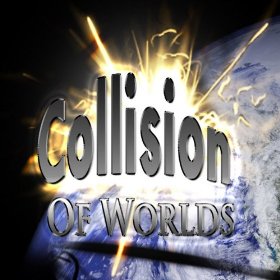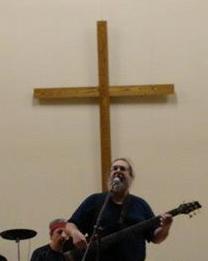This is mark Joseph “young” blog entry #97, on the subject of Ministry Calling.
We began this series with post #95: Music Ministry Disconnect. My reasons for writing and my credentials are in that article. We finished with the observations that
- All Christians are to do all things to the glory of God and minister as they are able;
- All Christian musicians should glorify God in their music;
- Only some are called to be what we call “ministers”; most are “entertainers”.
Our continuation in this article is really about that aspect of being “called” into “ministry”, what that means, and how to recognize it.
There is a sense in which the two aspects–being a musician and being a minister–might be linked, but there is another sense in which the question of being called is entirely separate from the question of being a musician. That means I am, perhaps rather hazardously, embarking on asking the question of how to know whether you are called to be “a minister” of some sort. I do not want anyone to suppose that I am questioning or challenging the calling of some minister–I make it a rule not to do that, and to remember that God deals with us as individuals, giving us individual tasks through individualized guidance. If you are a minister, I presume you know that you are called, and this should not in any way be taken as suggesting otherwise. This is intended to help people who don’t know whether they are called or not.
I should also repeat that musicians who are not “called” to ministry are not thereby excluded from using their musical gifts within the church. When Paul told the Corinthians that some attending their gatherings would have “a psalm” (I Corinthians 14:26)–a Greek word for a type of song–he appears to have meant that ordinary members of the congregation would be encouraged to share songs with the group. The fact (if it is a fact) that you have no calling to ministry does not prevent you from singing in the choir or playing in the worship band or sharing a song sometimes. It means something entirely different.

When we think about New Testament examples of someone being called to ministry, Paul’s Damascus Road encounter often comes to mind. Jesus appeared to Paul and told him he was fighting against the truth, and thereafter Paul repented and became an apostle to the gentiles. We conclude that this is when and how and where Paul was called to be an apostle.
And we are wrong.
Paul himself tells us in Galatians 1:15 that God called him to this ministry before he was born. He was called to be an apostle before he was breathing, and certainly before he was a believer. The entire time he was persecuting the Christians, he was already called to be one of our most prominent apostles. He received extensive seminary training–they would have called it rabbinical training, from Rabban Gamaliel I, the only person cited in both the New Testament and the Talmud–long after he was called, and before he was a believer. A calling is with you from before birth. It’s only a matter of when you realize it and understand it–and that might take some time.
This, though, fits with what Paul says in Ephesians 4:11ff. We misread that quite often. We think it says that Jesus gave some the gift of being a pastor or an evangelist or one of the other ministries, but it does not say that. It says that Jesus gave the church gifts in the form of people who are apostles, prophets, evangelists, pastors, and teachers. I once heard Evangelist Tom Skinner say that if he were not an evangelist he would be an excellent used car salesman, because he had the “gift of gab”. That’s a glib way of putting it, but it makes the point: if you are called to be a minister, you already are that minister, you were born that minister, and you cannot help being that minister.
One of my friends went through a very bad time in his life. He had been in Bible college preparing for the pastorate, and working full time to support his family, and it all became too much so he ran away with a younger girl and got a job as a custodian in a bar. While he was there, people brought their problems to him, and he gave them solid biblical advice–because he was a pastor, even when his life crashed, and he couldn’t help being a pastor. If you’re called, you are probably already doing the things that fit your calling–you just haven’t recognized it.
This also tells us that you don’t become a minister by developing specific skills or getting special training. We are told that Paul was, in addition to being an apostle, also a teacher. He was presumably also a teacher before he was born, before he had that extensive training in scripture. God didn’t call him because he had been to college; he sent him to college because he had called him. My degrees in Biblical Studies aid my teaching significantly, but they are neither the reason I am a teacher nor the qualification for my calling. Observation suggests that a calling to ministry is seen in personality and motivation: what you find yourself doing, and why you do it. If you are frequently acting like a pastor or teacher or other kind of minister, there is a very good likelihood that you are such a person, such a minister, born that way and possibly unaware of it. I was constantly learning and teaching before it ever occurred to me that I might be called to teach; it was just something I naturally did because of who and what I am. You probably can’t completely avoid being whatever it is God called you to be–as Paul said, “woe is me if I do not preach the gospel.”
The other half of it, though, is that other people are going to recognize this in you. People with needs that fit your calling will come to you, whether it’s for understanding or guidance or something else. Other people in ministry will recognize your place, and some will try to help you move into it. There are two issues here, though, and they both concern what we should call confirmation. The short form is that God is not going to send someone else–not even a prophet–to tell you something He hasn’t already been telling you directly.
The one side of that is that you should not permit yourself to be pushed into a ministry that does not fit you by someone who thinks you have a calling you honestly do not believe you have. This goes back to my experience with The Last Psalm and my observations of many other Christian bands of the time: a lot of us trying to do evangelism were not evangelists. I remember when one of our members left the band, he said to me that it was his impression that we had a tremendous amount of impact on the members of the band, but nothing of note on the audiences. That was undoubtedly because he was a pastor and I was a teacher, and we were the ministry front of a band that was desperately trying to fit the mold of an evangelist without having a clue how to do that beyond copying what others did. People will attempt to fit you into their expectations, their molds; but even if you are called God does not use molds but individually crafted vessels. If you really are not called, if God is not trying to tell you that you are a minister, He is not going to tell someone else what He has not told you.
The other side is that we can be notoriously poor listeners. I was completely obtuse. The fact was that I was on the radio six nights per week opening the Bible between songs and sharing what I had learned of what the scripture taught with some unknown number of listeners, many of whom made a point of joining me at that time for that sharing, but it had not occurred to me that I was a teacher; I only knew that I was not a pastor and was looking for my place in “music ministry” which I still assumed meant evangelistic outreach. It was not until someone I knew as a man of God introduced me to a complete stranger who was said to be a prophet, and in his prayer he noted that I was a teacher, that I realized it–and at that moment I saw that he was right. (That happened to me again decades later, that another prophet in another place recognized the same fact about me.) You might not get word from a prophet–you might be more aware than I was of what God is saying to you–but you will find that others recognize and acknowledge your ministry. If others seem to think you have a calling of which you are not aware, take some time prayerfully to consider whether they might be right, whether God has been nagging you about this and you have been ignoring Him. It is easy to miss, either because we are too modest to imagine that God might have made us for something special (which is silly, because He made everyone for something special, it’s just that your special purpose has a name and function within the body of Christ), or because we are unwilling to follow the path God has for us if it does not lead where we wanted to go (which is again foolish, since that’s the only place we will ever be content).
So what has this to do with being in “music ministry”? In a sense there is no such thing. There is music, and it can be a tool used in ministry. Being a musician is about skill sets and ways of processing information, talent and practice. Being a minister is about who you are more fundamentally, about something that consumes your life, becomes the very definition of who you are and what you do, how you relate to others and to yourself. When I say that I am a musician, I mean only that I have musical abilities that I use in various ways; certainly if something happened that prevented me from using music, I would miss it, but I would still be who I am. When I say that I am a teacher, I mean something much more basic, that this is who I am, what I do, that if you chat with me in the kitchen while I’m washing dishes it’s very likely that I will start teaching you about something, whether it’s the basics of relativity or the concepts of Lord of the Rings or the fundamentals of law and grace. It’s who I am. It becomes “music ministry” when I figure out how to integrate my musical abilities into that calling, how to use music as part of the teaching. It is the same for all the ministries: ministers are people with specific tasks for the building of the body of Christ; some learn to use music as part of the pursuit of those objectives. The same can be said of visual artists, dramatic artists, and indeed of computer programmers and game designers and basket weavers and taxi drivers, that those with a calling integrate their skills and talents into that calling.
A music ministry, then, is simply a ministry that has integrated music into the process.
A calling, meanwhile, is a fundamental aspect of who you were born to be which unfolds and is discovered by you and others during your life, as you grow into the place for which God made you.
We’ll talk more about ministries in future articles.
Next article in the series: What Is a Minister?



